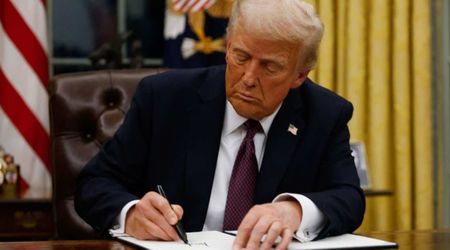How a Staggering Rise in Urinary Catheter Bills Led Investigators To Alleged $2 Billion Medicare Scam

Last August, the Pretty in Pink Boutique in Franklin, Tennessee, found itself at the center of a controversy. Angry calls from Medicare recipients across the nation alleged fraudulent charges for urinary catheters they neither ordered nor received. This unexpected incident left the boutique's staff bewildered, prompting an investigation into the origins of these unauthorized billings. The findings? A well-planned Medicare scam.

According to healthcare experts, the alleged scam targeted Medicare, the taxpayer-funded health insurance program for older Americans, estimated at around $2 billion. The scam involved seven companies submitting fraudulent insurance claims for urinary catheters, a relatively low-cost medical product that escaped stringent scrutiny compared to higher-value medical equipment.

The modus operandi of the scammers was intricate yet brazen. Over two years, these companies went from billing just 14 patients for catheters to an astonishing 406,000 patients, as revealed by an analysis conducted by the National Association of ACOs (NAACOS), a healthcare nonprofit.
Urinary catheters emerged as an attractive target due to their low cost and the potential for substantial profits when ordered in bulk. The scammers capitalized on Medicare's high payment rates for these products, despite warnings from healthcare watchdogs about overcharging.

Federal officials, including the FBI, launched investigations into the alleged fraud, albeit shrouded in secrecy due to the sensitive nature of the probe. The NAACOS identified seven companies operating across multiple states as the primary culprits behind the surge in fraudulent billing. These companies, previously accredited with Medicare, exploited real patients' information to submit false claims for urinary catheters, despite no evidence of patients needing or receiving them.
Moreover, the fallout from the scam extended beyond financial losses, triggering concerns among healthcare providers and patients alike. Accountable Care Organizations (ACOs), responsible for managing care for seniors, faced potential penalties from Medicare due to inflated billing for unnecessary medical supplies. Coastal Carolina Health Care P.A., for instance, faced a penalty of $900,000.

Fighting fraud in the medical equipment industry poses significant challenges for government agencies and law enforcement. Repeat offenders adept at setting up shell companies and exploiting regulatory loopholes adds to the complexity of investigations. Gabriel L. Imperato, a former Department of Health and Human Services lawyer, emphasized the sluggish pace of justice, citing the time-consuming process of assembling evidence and prosecuting cases.
For patients like Aileen Hatcher, the scam posed broader concerns about the security of personal information and the integrity of the healthcare system. Hatcher's discovery of unauthorized charges for catheters she never ordered or received left her feeling vulnerable and disillusioned.

While investigations continue and regulatory measures are implemented, this incident highlights the need for enhanced transparency, accountability, and vigilance within the healthcare industry. Only through concerted efforts and collaboration among policymakers and industry leaders can we safeguard Medicare and protect vulnerable patients from falling victim to such scams in the future.



















